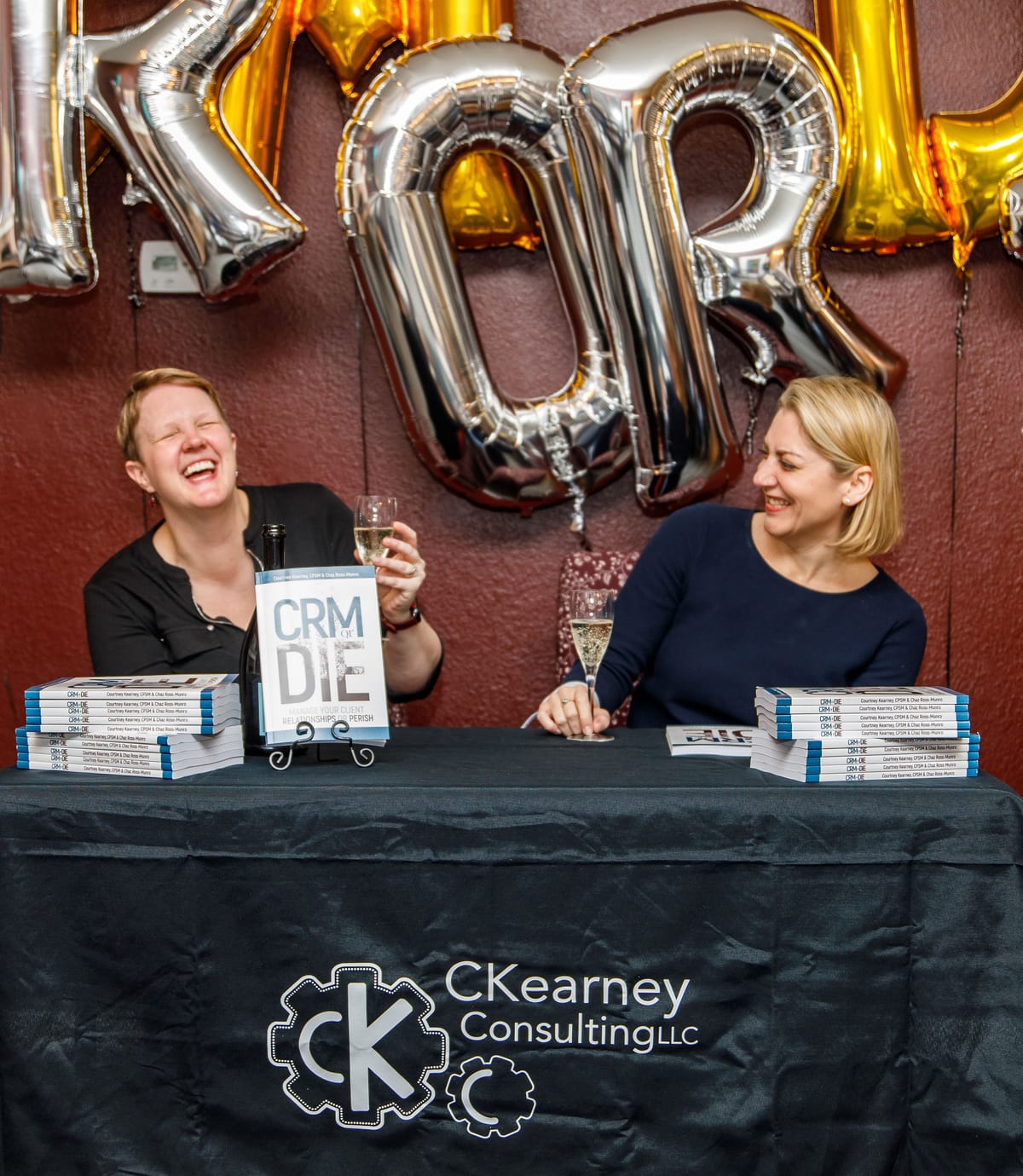Lessons Learned from Writing CRM or Die

After writing my first book, Sink or Swim Faster: Making a Splash in Professional Services, I did not think I would write another book so soon, but then Covid hit and it seemed like it might not be such a bad idea if I was going to be stuck inside for a while. After letting all the feelings go from the first book, I was ready to tackle the second. This time around, I had a few ideas on how I wanted to do it differently:
- Write with a friend;
- Find a good editor;
- Ask more people to review the draft sooner; and
- Don’t try and format the book yourself.
Write with a Friend
It really is no fun living inside your head for extended periods of time. While writing, that’s kind of what you do. After my first book, I realized during the editing process as I was giving out copies of my drafts for people to read, that it really helped me to discuss the ideas in the book with another person while writing it. I had so much fear while writing my first book, I didn’t want to share it with anyone until it was pretty close to done. I definitely wasn’t going to do this the second time around. I found a great partner: Courtney Kearney. Courtney and I had started working together while I was at Cosential (now Unanet) and we really had similar philosophies on working with CRMs: from implementation to management, and automation. Not only do we share similar ideas, but she is as passionate as I am when it comes to managing a firm’s data to enhance customer relationships. Since we had a lot in common, outlining the book, discussing what would go in and what we should leave out became much easier. So grateful she decided to take this journey with me – it was definitely worth it!
Find a Good Editor
As I mentioned above, when I was writing my first book, I basically hired a line or copy editor to review my draft prior to giving it to some of my colleagues. Fear kept me from reaching out to more people and finding the specialists I needed! Not the second time around. For CRM or Die, I reached out to Karen Rowe, who I met at a networking event. Courtney and I read her book, Behind the Cover to help us structure our book. After reading Karen’s book, we had a great first draft, which made the first round of edits with her team much easier (the first round is what most editors would call a developmental or structural edit). After that round of editing, Courtney and I took the feedback and made tweaks to our draft. Next, we did the copy or line edit. During this edit, Karen and her team did corrections for grammar, spelling, punctuation, and a review of the overall sentence structure to make sure the content was as good as it could be. Since Courtney and I worked together on the book, it was great to have her review my content and vice versa during the entire process coupled with Karen’s editing team. The process of editing and discussing the concepts in the book brought more clarity than I would have ever thought possible. When I write my next book, I’ll definitely utilize Karen’s team again (if they’re available – they’re really good).
Ask More People to Read Your Draft Sooner
Do not be afraid to let people read your book even before it’s done cooking yet! I can’t stress enough how important it was to have Courtney and other colleagues read our draft during the editing process. It’s okay if your draft isn’t perfect, but working with others and getting their ideas can help you do a much better job of making sure key components of the book are discussed in a way that is clear to both readers familiar with the subject and those that may be a little newer to it. All of the questions we received and feedback on the draft during its various states were so key to making it the best it could be.
Don’t Format Yourself
After the writing and editing process, trying to format the book yourself is a headache waiting to happen. Since I had spent a lot of time formatting proposals in my previous life, I thought formatting would be a breeze. Never again. Courtney was kind enough to take on the formatting of this book through with Ingram Sparks Book-Building Tool but I think that she would agree that formatting after writing is a huge pain and it’s better left to someone that hasn’t been slaving away on content for months.
In Closing
If you have dreams and aspirations of writing a book, don’t hesitate to get started! There is nothing better in this world to have someone read something you’ve written and tell you how it’s helped them with a challenge they are facing in their life. It’s an amazing feeling and I hope you get to experience it!